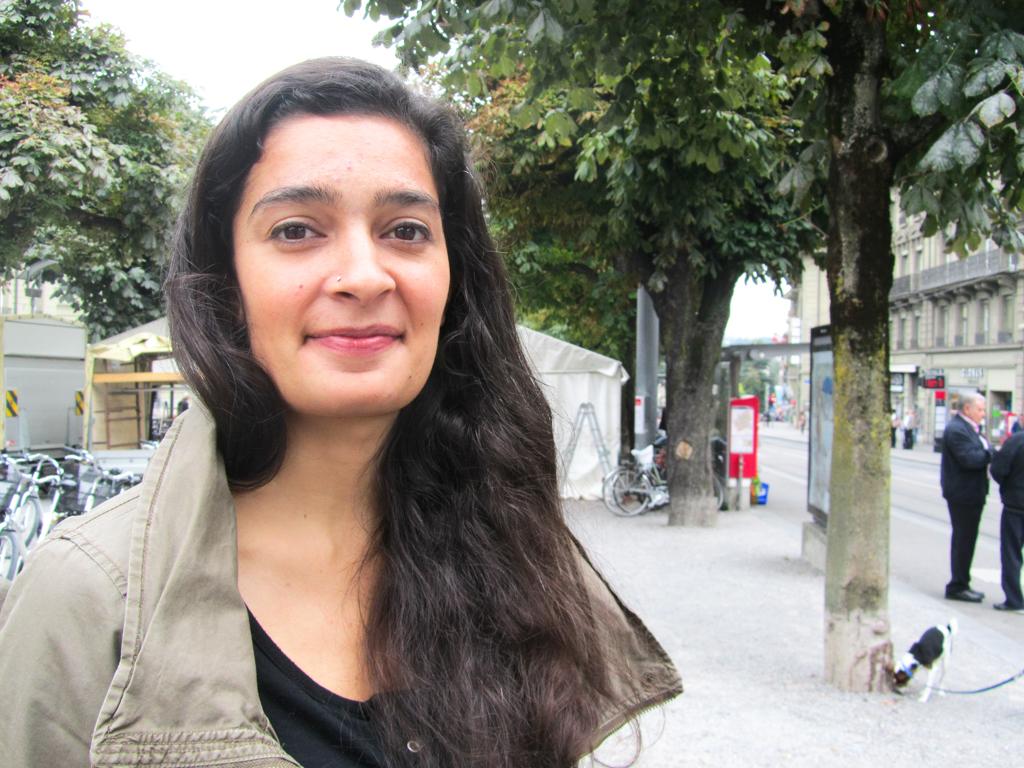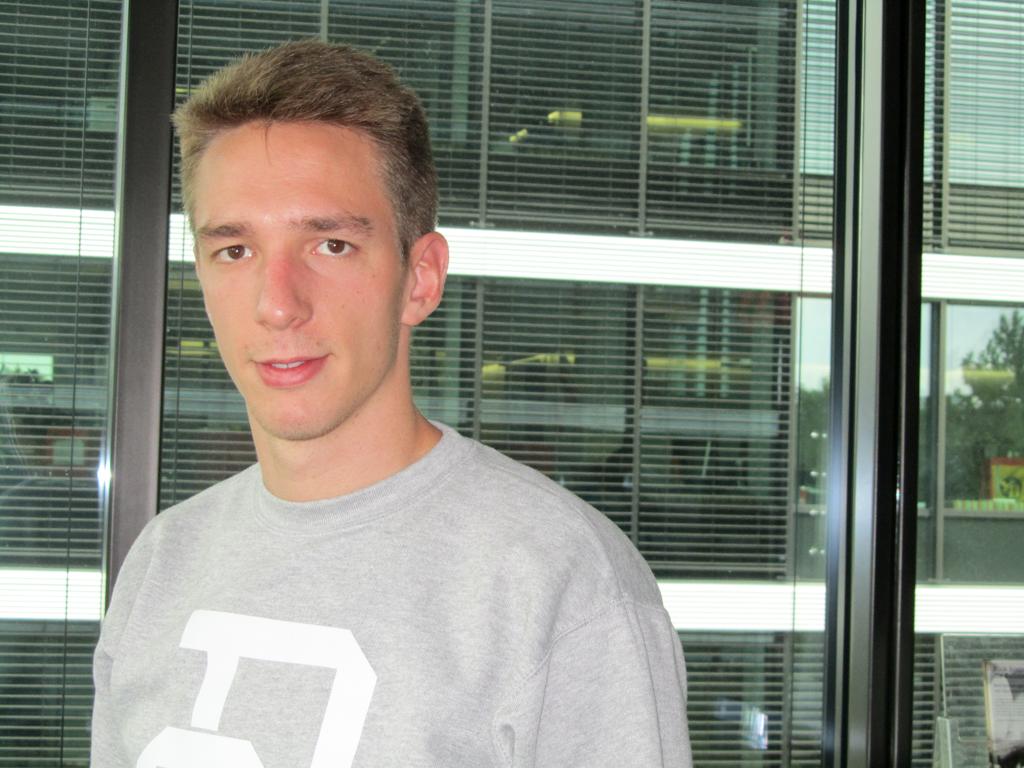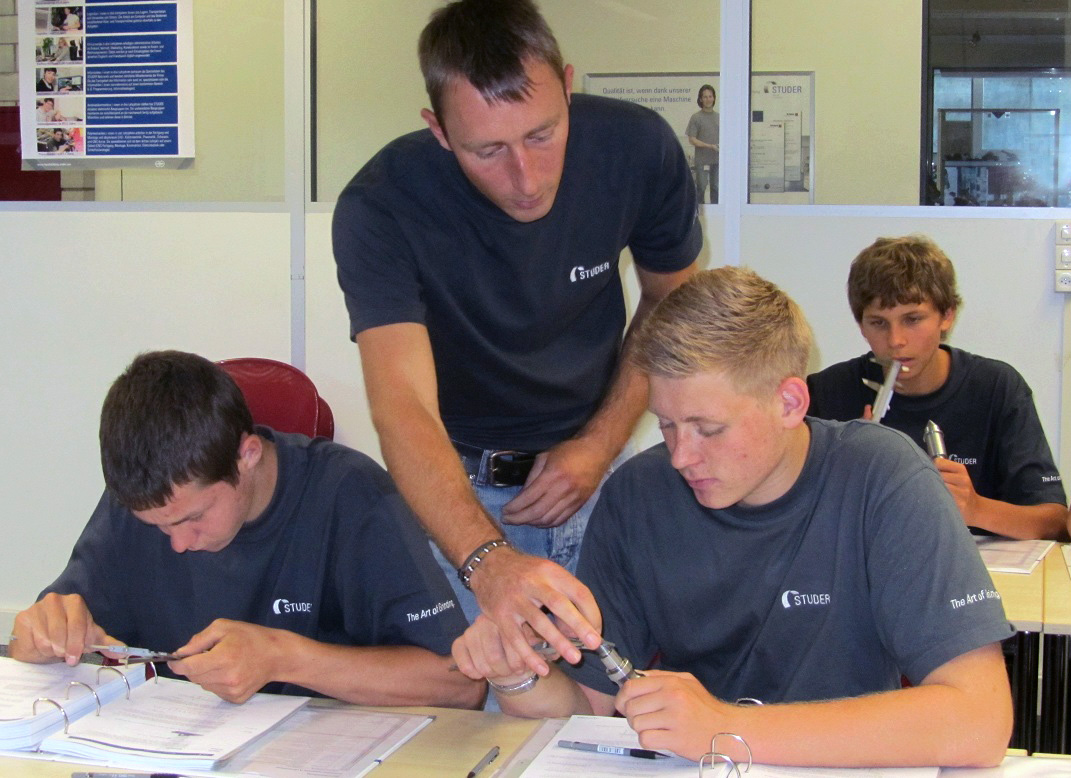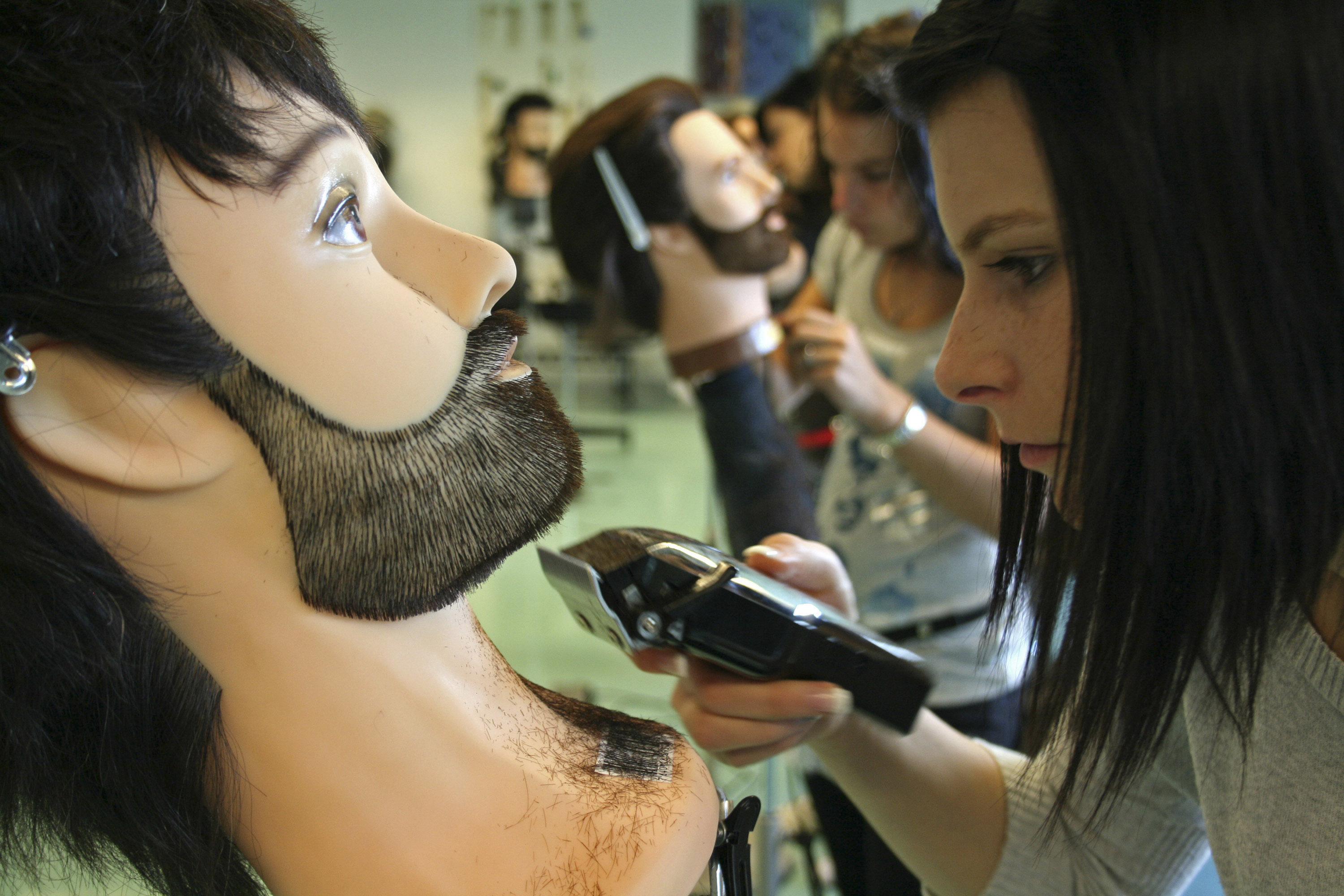Work or study? The decision can confuse and divide

Apprenticeships are part of the backbone of the Swiss career system, but today not every young person is sold on the idea and further education has a strong pull for those wanting to hedge their bets. Meet some of today’s “Generation Maybe”.
Stefan Krucker knows what makes 14 and 15-year-olds tick. As a former career counselor who now supervises others in that role, he’s seen thousands of young people at their schools and in his offices at Bern’s Occupational, Educational and Career Guidance Centre, wondering what to do with their futures.
Usually, at the end of compulsory schooling, students have to decide whether they have the desire and the grades to continue with senior high school, or whether they want to pursue an apprenticeship. The former generally leads to university study, the latter into the working world and possibly to further vocational schooling. Krucker says the factors young Swiss must consider have become more complex as societal demands and expectations have changed.
“The fact is, career training has become more and more demanding and people generally have more knowledge, so people feel that if you have the highest, most demanding education, you have the best chance of getting ahead,” Krucker explains.
Indeed, in the past decade, the number of students seeking higher education through a university or a university of applied sciences has increased more sharply than the number of young people doing only an apprenticeship, as this chart shows.
And, the number of young people attaining a senior high school degree, or baccalaureate, has also crept up to about 20% today from 17.7% in 1999. Krucker points out that that figure has remained fairly stable in the past few years, but the increase worries some people who feel Switzerland’s apprenticeship system is being overshadowed by the perception that more schooling and university education are needed.
“There’s the argument that we have a very low level of senior high school graduates compared with other countries, and we need to increase that if we want to compete in technical and highly complex areas. And the other argument is that we are economically so well-off thanks to the fact that 70 or 80% of our young people do apprenticeships. They say, continue to support and invest in that system.”
PLACEHOLDER
Here are some stories from those caught in the middle.
Learning the hard way
When it came time for Milena Ziegler to decide what to do at the end of obligatory school, she was pretty much in the dark. The one thing she did know was that she didn’t want to go on to senior high school.

“People say we’re ‘generation maybe,’ and I think that fits. We have too many possibilities and we’re overwhelmed when it comes to choosing one.”
School was always a bit of a burden for Milena, so she decided to shadow several apprentices to see what might be a good fit for her. She landed at the Federal Office for the Environment, exploring an apprenticeship as an electrician, which she eventually got and accepted.
But a year and a half in, she realised it wasn’t the right fit.
“During the apprenticeship, I realised the job is too theoretical with a lot of academic work, and you are often alone in the office. I worked alone a lot and wasn’t really in a team where we developed something together,” she says.
“Because I didn’t know what else to do, I saw it through. I almost quit in the middle, but everyone advises you not to do that because it’s your first career education and you have to start over from the beginning if you quit.”
Although Milena is a bit lost now, she says she’s financially independent from her parents and has been so for a while. She’s making ends meet by working as a waitress. And she learned from her struggle.
“It’s kind of silly, but because I realized what I didn’t want, I could get quite a bit out of it personally, versus if I had gone to school more,” she says.
But she does think a broader and longer introduction to her options would have helped.
“In our system we always hone in on a specialty, so that person can really only do that one thing. If you want to make a product, you have to involve lots of people because an individual doesn’t have the knowledge to do it. And I don’t think that’s very good.”
Today, Milena has a plan: while continuing to wait tables, she’ll attend a University of Applied Sciences part-time – which her apprenticeship qualifies her to do – in order to earn a vocational baccalaureate. It will still be in a technical field related to her apprenticeship, but she’ll have more options open to her – even if she has no idea where they will lead.
From school to apprenticeship and back again
Rahel Fitze took another route, at first – she went on to senior high school “because I wanted to study archaeology – that was my dream”.
But then her plans changed and she realised didn’t have any motivation for continuing in the tough, theoretical schooling environment “without any connection to the working world”. So she quit and, through an acquaintance, landed an apprenticeship as an administrative assistant beginning the following school year.
“For my generation, [choosing a path] is definitely hard because the pressure is there to do university education,” Rahel says. “I think that’s a huge pressure for young people who might be overwhelmed with the large offering that there is.”
Out of all her classmates in high school, she says only about 20% really had a clear goal in mind and knew what they wanted to study.
“Many went to university and switched directions a lot because they didn’t know exactly what they wanted,” the 23-year-old observes.
Because Rahel went to a private school for the last few years of obligatory school, she simply continued there into senior high school and didn’t give much thought to an apprenticeship at first. Although it took her a few years to find the right path for her, she thinks having had that tough schooling environment helped prepare her for doing an apprenticeship while working towards a vocational baccalaureate at the same time.
“I didn’t feel like I had to start over [after I quit high school] – I didn’t see it as lost time.”
Ultimately, she believes that “both [the apprenticeship and schooling] paths are worth the same” and that both offer avenues to good careers. Getting her vocational baccalaureate allowed her to start a programme at a technical university that will earn her a bachelor’s degree in three years and then hopefully a job in the human resources sector.
“It depends whether you’re more the bookworm type or if you really like to do practical work and maybe do a vocational baccalaureate that will still let you go to university.”
Leaving paths open
“I’ve always been interested in a little of everything,” says 20-year-old Claude Schmid, who’s about to start his second year of studying towards a bachelor’s degree in law at the University of Bern.

For him, deciding at 14 how he wanted to continue his career path wasn’t hard – he had the grades, he liked school, and so he kept going with senior high school.
Although both of Claude’s parents did apprenticeships and didn’t go the academic route, he says they were open to whatever he wanted to do – as long as he did something.
But neither they nor career counselors could help him when it came time for him to make what he says was “the toughest decision of my life”: what to study at university.
“I was interested in so much and was completely overwhelmed,” he says. “I had to focus on a particular area, and I was between science and law…in the end, I could have flipped a coin.”
And although it’s turned out to be the right path for him, Claude calls it “a shame” that going the academic route is often valued more highly in society than choosing a vocational path. He sees many of his peers barely getting by in senior high school or paying for expensive private high schools of lesser quality just to try to meet expectations and make it in the academic system.
“I feel like money is the calling for many people,” he says. “I’d like to see a system where everyone earns the same amount no matter what job they do, and see how people make decisions then. I’m sure not as many people would study business, for example.”

In compliance with the JTI standards
More: SWI swissinfo.ch certified by the Journalism Trust Initiative




You can find an overview of ongoing debates with our journalists here . Please join us!
If you want to start a conversation about a topic raised in this article or want to report factual errors, email us at english@swissinfo.ch.